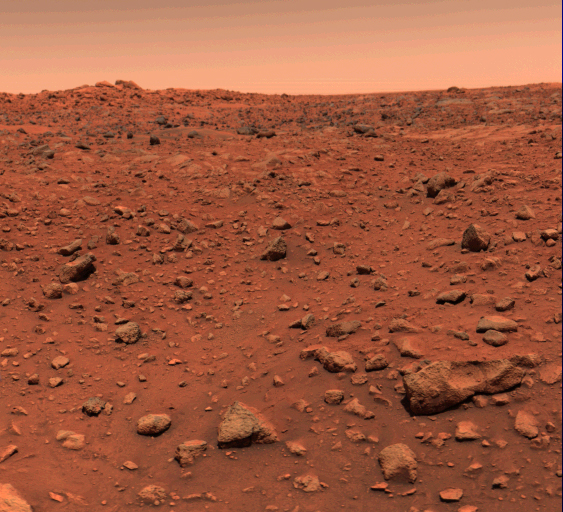
Minerals present in Martian rocks sucked in all water and made the planet inhabitable, says study
A new study revealed that, if liquid water was present on Mars, then it would have been dried up the rocks present on Mars’s surface. Mars is known as a dry, arid and frozen planet. Many scientists think that ancient Mars had water present on its surface but with the passage of time all its water got dried up and it got converted to an arid, dry and icy planet.
The latest study informed that. When the Mars’s magnetic field collapsed, it was unable to shield the incoming high-energy solar flares from Sun. Hence all its water got dried up, and those little amounts of water that survived the solar rays were dried up by the rocks of the red planet. Previously scientists thought that water disappeared from Mars due to a process called photolysis in which the solar rays break the oxygen and hydrogen bonds. When the magnetic field got weakened, more amount of solar rays reached Martian surface and hence dried all the water.
But, a recent research has discovered an interesting thing about the Mars. When the scientists were trying to figure out how the minerals in the red planet’s rocks interact with liquid water, they found out that the basalt rocks on the Martian surface act as a sponge and suck in all water. According to the study, the basalt rocks can hold almost 25 percent more water than those on Earth. The paper stated that their calculation suggested that in excess of 9 percent by volume of the Martian mantle might contain hydrous mineral species as a consequence of surface reactions, compared to about 4 percent by volume of Earth’s mantle.
Jon Wade, a research fellow at the British Natural Environment Research Council at the University of Oxford believes that minerals could be the important factor behind the inhabitable nature of the Red Planet. He said, “People have thought about this question for a long time, but never tested the theory of the water being absorbed as a result of simple rock reactions, Martian meteorites are chemically reduced compared to the surface rocks, and compositionally look very different. One reason for this, and why Mars lost all of its water, could be in its mineralogy.” The paper was published in the journal Nature.


